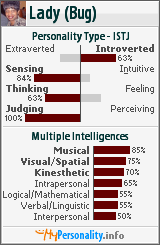
But today, at 71 years old, with two more decades of perspective, a doctorate from a Baptist seminary, and a distinguished gray goatee, the Philadelphia's first black mayor says he has moved on from such a harsh assessment of the significance of May 13, 1985. "It's just one day in the life," he said in a recent interview in his sixth-floor office at 2000 Market Street, where he acts as Executive Director of Amachi, a nationally recognized program that matches children of incarcerated parents with mentors.
"I view it as an aberration in my life," Goode said. "I don't view it as part of a continuum in my life. Mistakes were made. You put it in perspective. You don't let it paralyze you. You don't let enemies or anyone define you by it. "I have no explanation as to why it happened or how it happened," he said. "It is something that should never have happened."
Goode said he has never discussed MOVE with his wife, Velma, or his three children, including City Councilman W. Wilson Goode, Jr., who himself refused to discuss even the idea that the family did not talk about the subject. In recent weeks, though, Goode resigned himself to a series of interviews, on camera and off, to coincide with the 25th anniversary of the MOVE assault, in which a botched police plan left 11 people dead, including 5 children, and 250 people homeless. But he stressed that in 25 years, the only people to ever bring up MOVE have been Philadelphia journalists.
Goode said, "I have to say I don't see it as the media sees it, as the darkest day in the history of the city. In the last 25 years, I've been to 46 out of 50 states, and the issue of MOVE has never been raised with me. I've never been confronted by anyone about the issue. People who have known me by my reputation see it as an aberration, and see it as something that happened one day in my life and not a pattern. I do not believe that people think about it any more. Keep in mind, that people who are now 30 years old were 5 years old. People in the city under 25 or 30 years old, that's a whole lot of people in the city."
Indeed, at a recent appearance at the Fels School of Government at the University of Pennsylvania, no student asked about MOVE, nor did Goode himself bring it up. He has personally become "spiritually stronger" as a result of the tragedy. He serves as the minister of administration at the First Baptist Church of Paschall in Southwest Philadelphia, and said he had always felt a special relationship with God that only intensified after such a severe testing in 1985. "I did not feel like I was in a spiritual wasteland," he said of the immediate aftermath of MOVE. "When I did my devotions this morning, I read where it says, 'In life there would be joy and tribulations.' And so bad things happen to good people despite their best efforts. And sometimes with God's permission."
Goode said he is not suggesting there is nothing to be learned from the tragedy. And, as the mayor who authorized the police to pursue arrest warrants of MOVE members that day, he says he was never told they planned to use a bomb to dislodge the bunker built atop the house, and was as stunned as anyone to see police and fire officials allowing the fire to burn uncontrolled for 45 minutes. But, he says he takes full responsibility.
The MOVE Commission investigating the events of May 13th was critical in its findings. "The plan to bomb the MOVE house was reckless, ill-conceived, and hastily approved. Dropping a bomb on an occupied rowhouse was unconscionable and should have been rejected out of hand . . ." by the mayor, the managing director, the police commissioner, and the fire commissioner.
Charles W. Bowser, a member of the MOVE Commission, wrote separately that "Mayor Goode cannot be held responsible for the dark tragedy of May 13th for the worst reason of all: He was not leading when it counted the most." But, Goode is not interested in second-guessing. Instead, he has distilled the MOVE catastrophe into a handful of lessons.
First: "Make sure you understood what the total plan is before authorization to do it," he said. Goode was criticized for delegating too much authority to Police Commissioner Gregor J. Sambor and for being in the dark about details of the plan.
Second: "If you want to negotiate with people holed up inside a facility, don't send police officers. Send trained negotiators. And, don't allow the police officers to be in charge of what happens at the scene. Make sure someone else is there at the scene." Goode remained at his home and then his office for much of the day, discouraged from being on site or at the command center by threats against him and by his conviction that the confrontation was a police operation the mayor should not direct.
Third: "The third lesson is all life is important. Any loss of life is tragic, especially when it did not have to happen."
Fourth: "You need not be a bad person to have bad things happen on your watch." While not dwelling on that day, Goode said, he does think about it daily. "Daily, I drive by the block where it occurred," he said. "Every week, I talk with people who live there who were hurt by what happened." However, he says the MOVE experience was so unique that its lasting lessons and impact are limited. "Keep in mind that no other mayor, no other city, at any point in time ever had an issue like this. That's why it must be viewed as an aberration."
He said the experience informs some of his preaching these days, but not all. "It is present as a revelation from God to use it as a context to make a point," he said. "That point could be, tragic things happen in the lives of cities. Sometimes things happen to leaders, and it's a test of what they're made of. That's the context. The testing of one's ability to continue to stay focused. "I take full responsibility for it," he said. "I try to make up for it every day."
Goode said he raised the issue of MOVE himself in a recent lecture on crisis leadership at the Center for Urban Theology, as one of three cases where management strategies and what God demands of leaders could be gauged. The other two were Three-Mile Island, which took place while he was chairman of the Pennsylvania Utility Commission, and the 1986 trash strike. "God expects us to stay focused, not to get pulled to the left or to the right. How do leaders act? What they do is, they keep on leading, they keep their eye on important things."
Goode believes he succeeded in doing just that in his remaining time as mayor, in which he says he spearheaded the renaissance of Center City and began the city's homeless and anti-graffiti agencies, and in the decades since, serving with the U.S. Department of Education before taking over the Amachi program. "I empowered by God felt every step of the way to do the best job I could to help this city. I woke up every morning for eight years with excitement."
Goode said he focused on trying to mitigate the lasting damage done to the neighbors whose houses burned, but he acknowledged that the badly deteriorated block even 25 years later shows that neither he nor subsequent city administrations have succeeded in that. "One would not be human if one would not see that as a monument to what happened," he said, of the 6200 block of Osage Avenue.
Now a grandfather of two girls with whom he texts back and forth on a daily basis, Goode says he was not worried that his legacy would be burdened by that one day. "I don't have any worry in my mind that people will define me by that one day," he said. "My accomplishments are too numerous to simply define me, and say 'That's who he is.' "




































+of+JBHS+30th+Reunion.jpg)



































































 🕊 Rest in Paradise Dad
🕊 Rest in Paradise Dad 🕊 Rest in Paradise Mom
🕊 Rest in Paradise Mom



















1 comment:
Hey Rozzie,
I've been away from your blog because I got another computer and couldn't remember your blog's name. I accessed it today through Keith's blog. Now it's saved on the new machine. It works better than my brain, most days.
As usual you have captured the essense of the issue: People are judged by the totality of their living. Mayor Goode cannot be defined by that day's action alone. The Lord knows his heart and will compassionately judge. And I'm glad He judges and not us!!
Great writing!!
Post a Comment